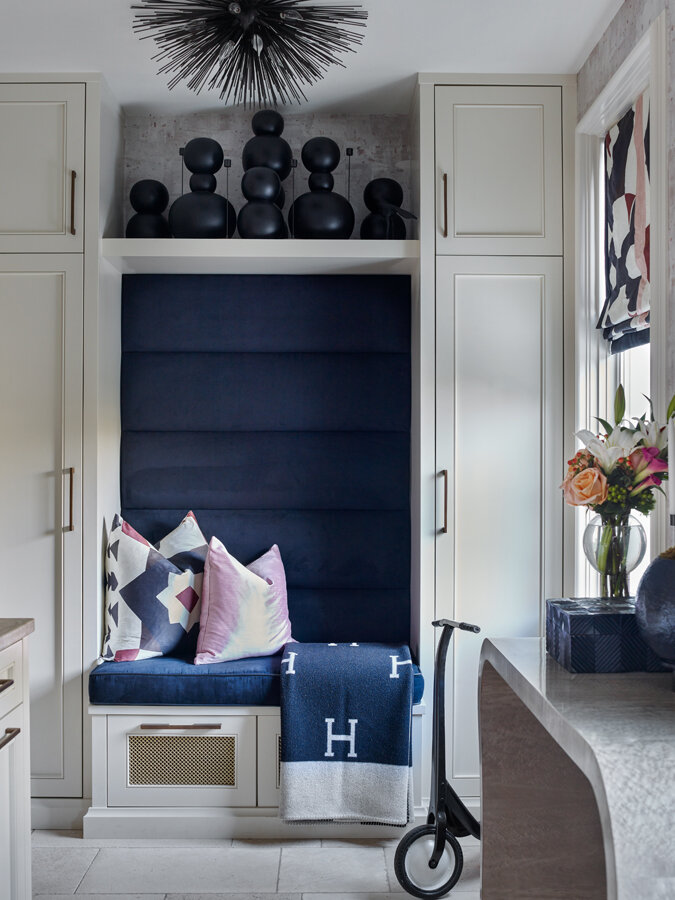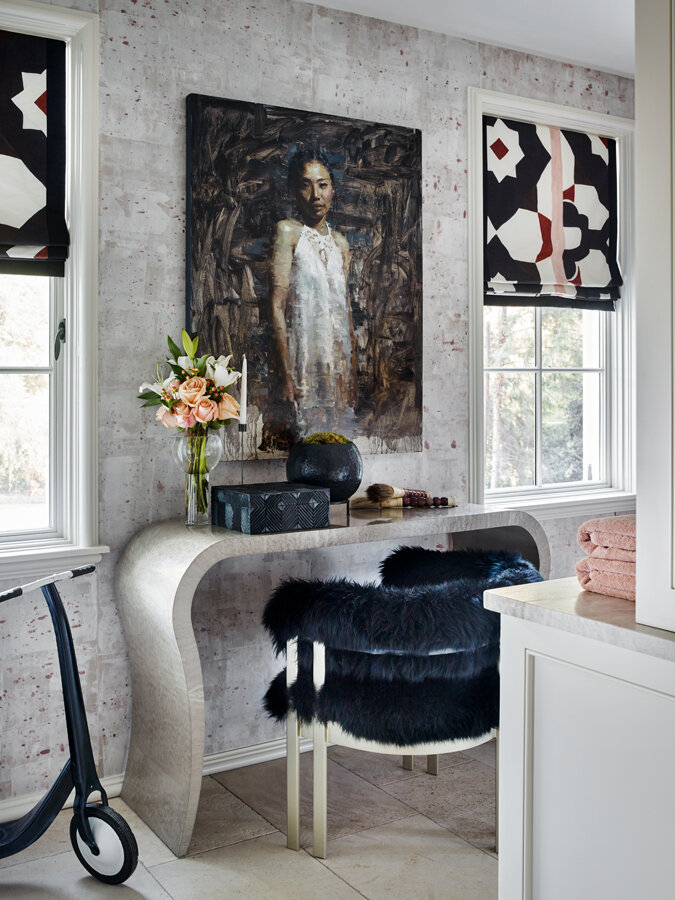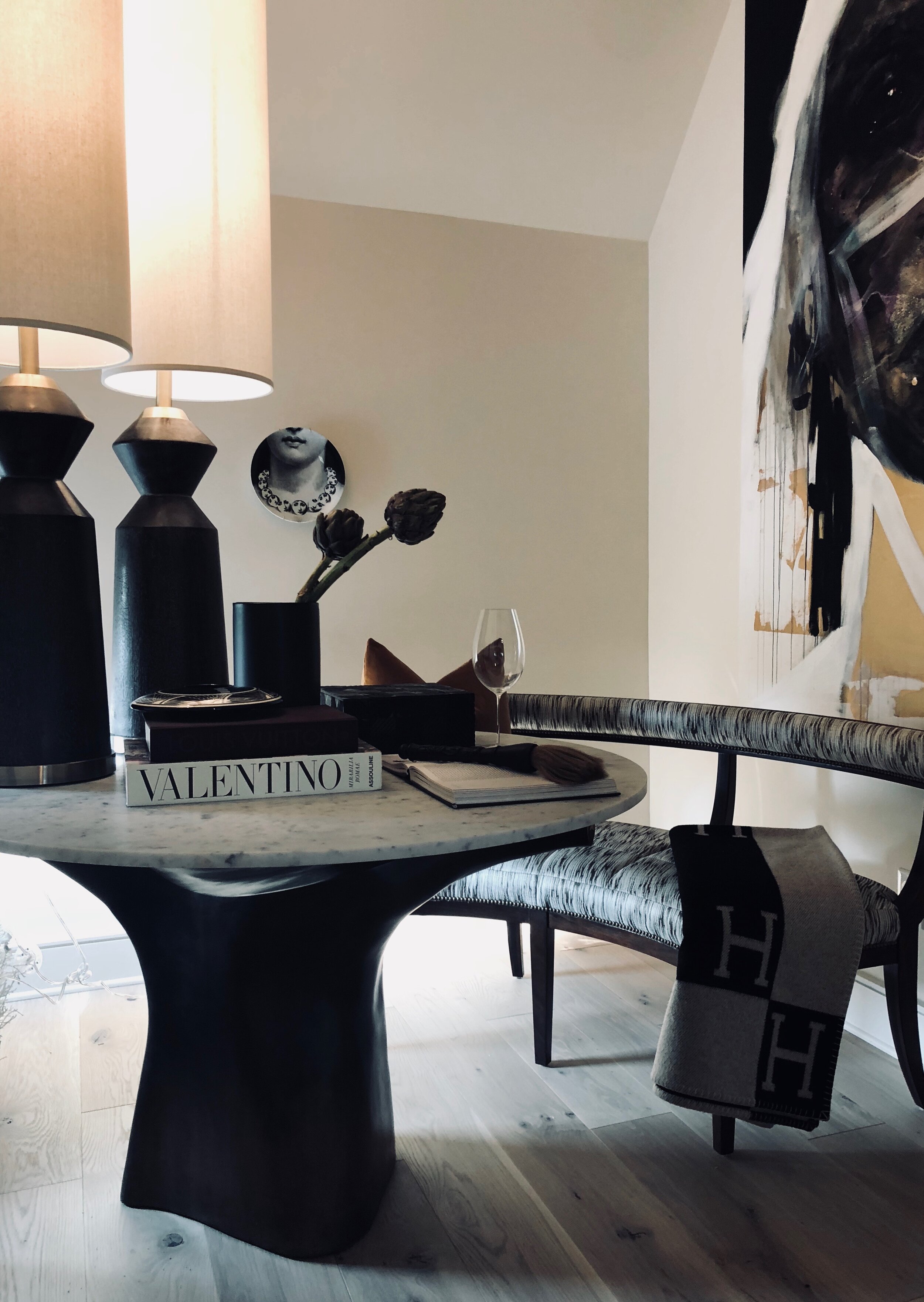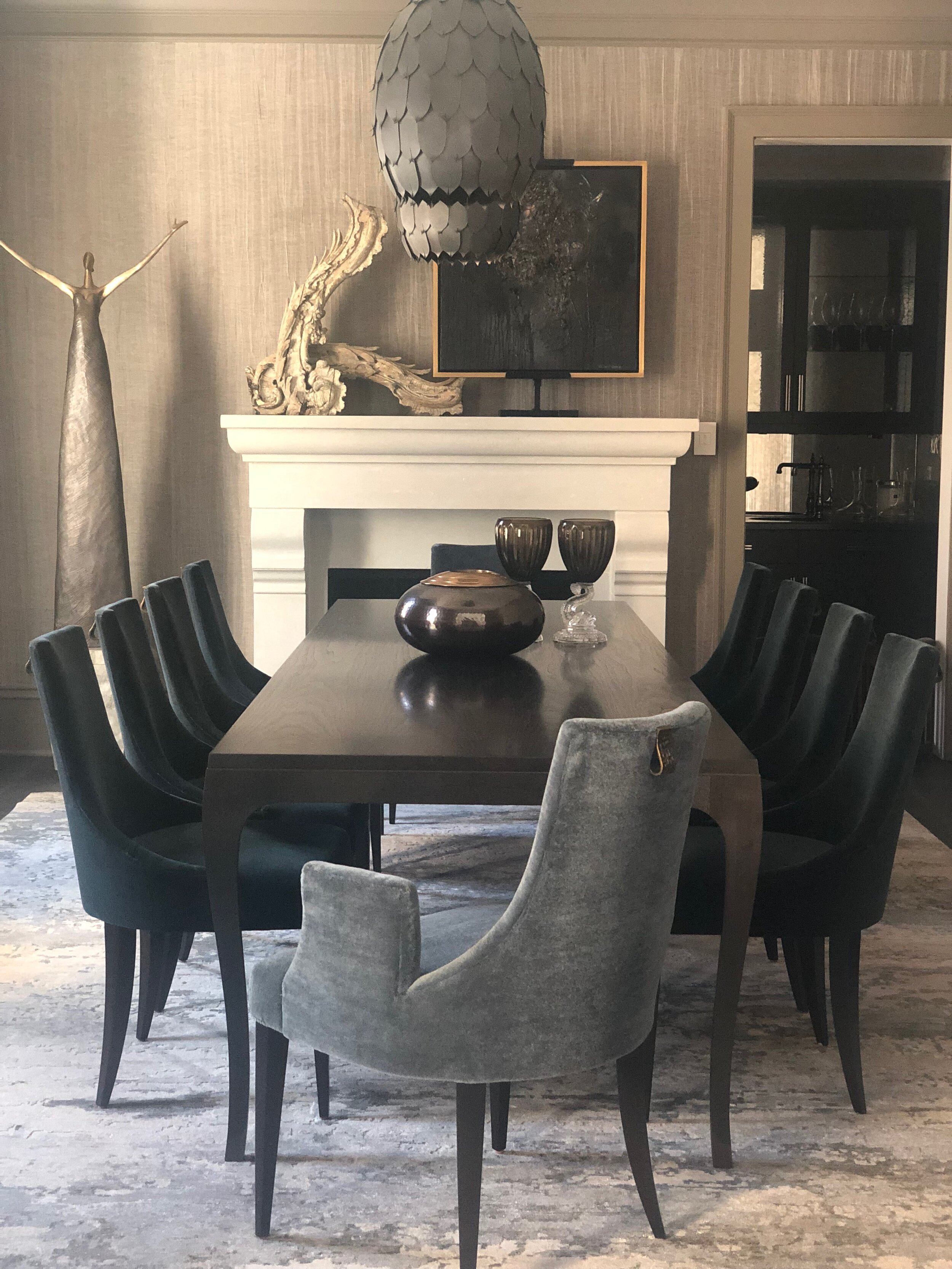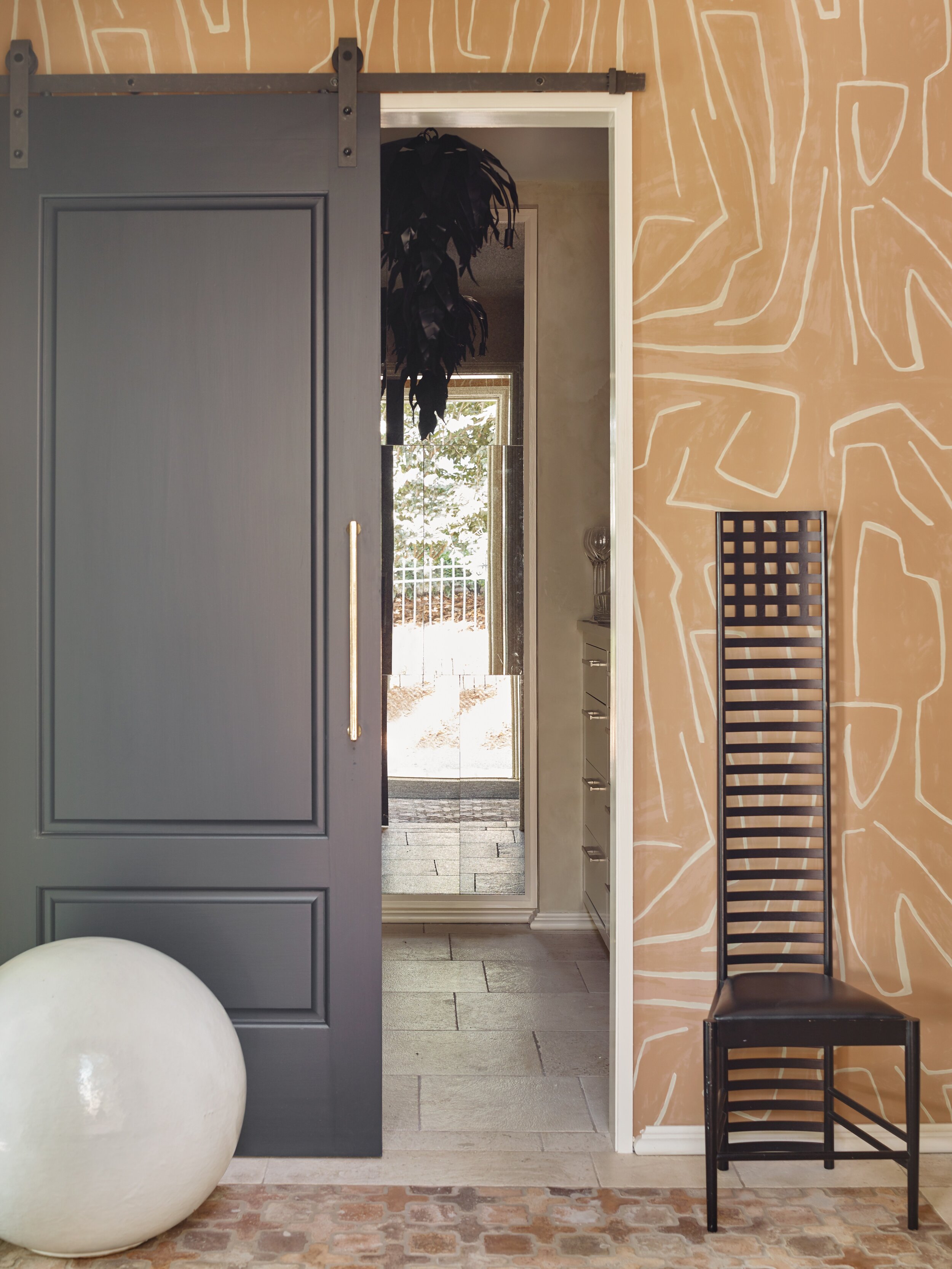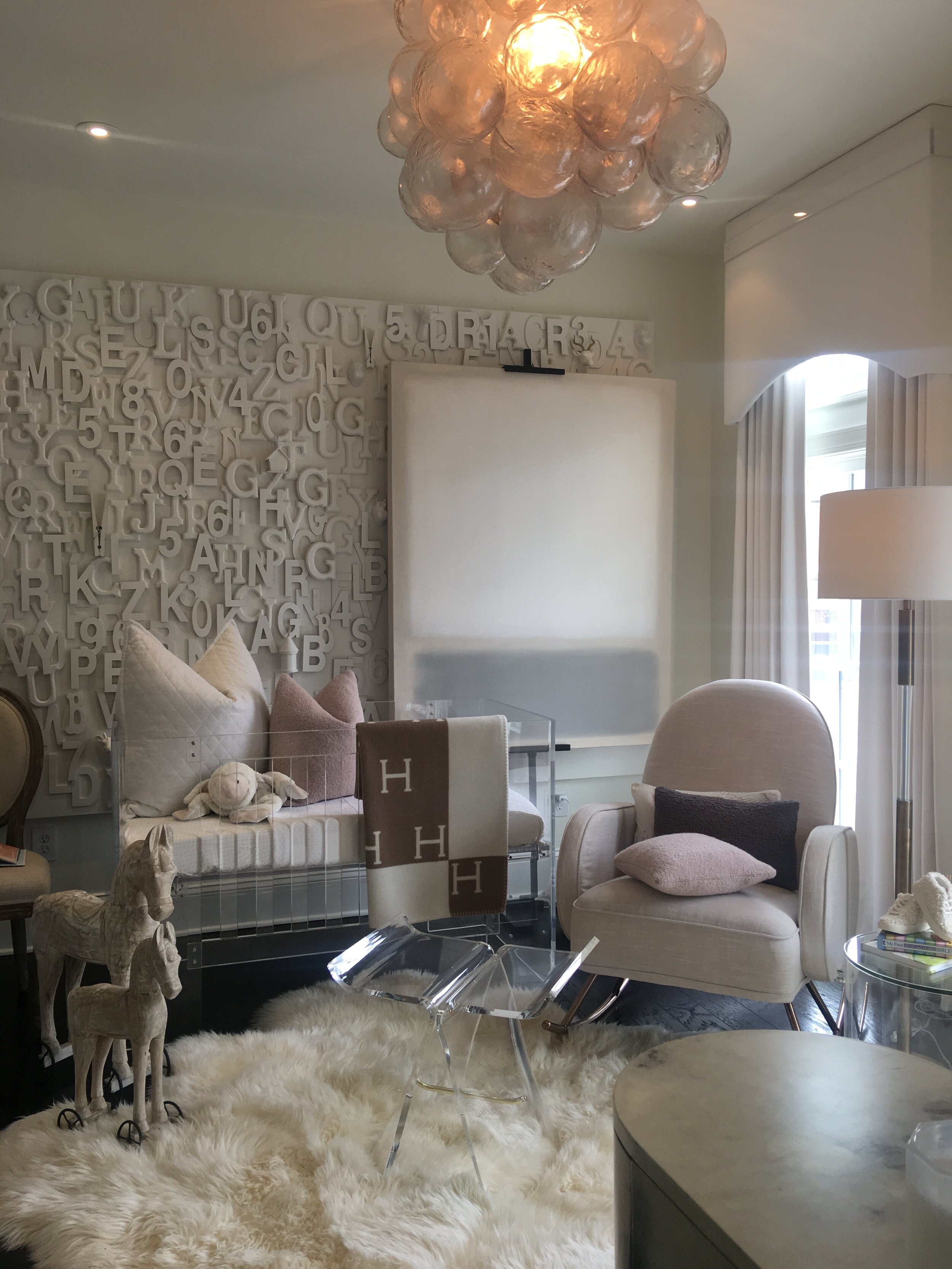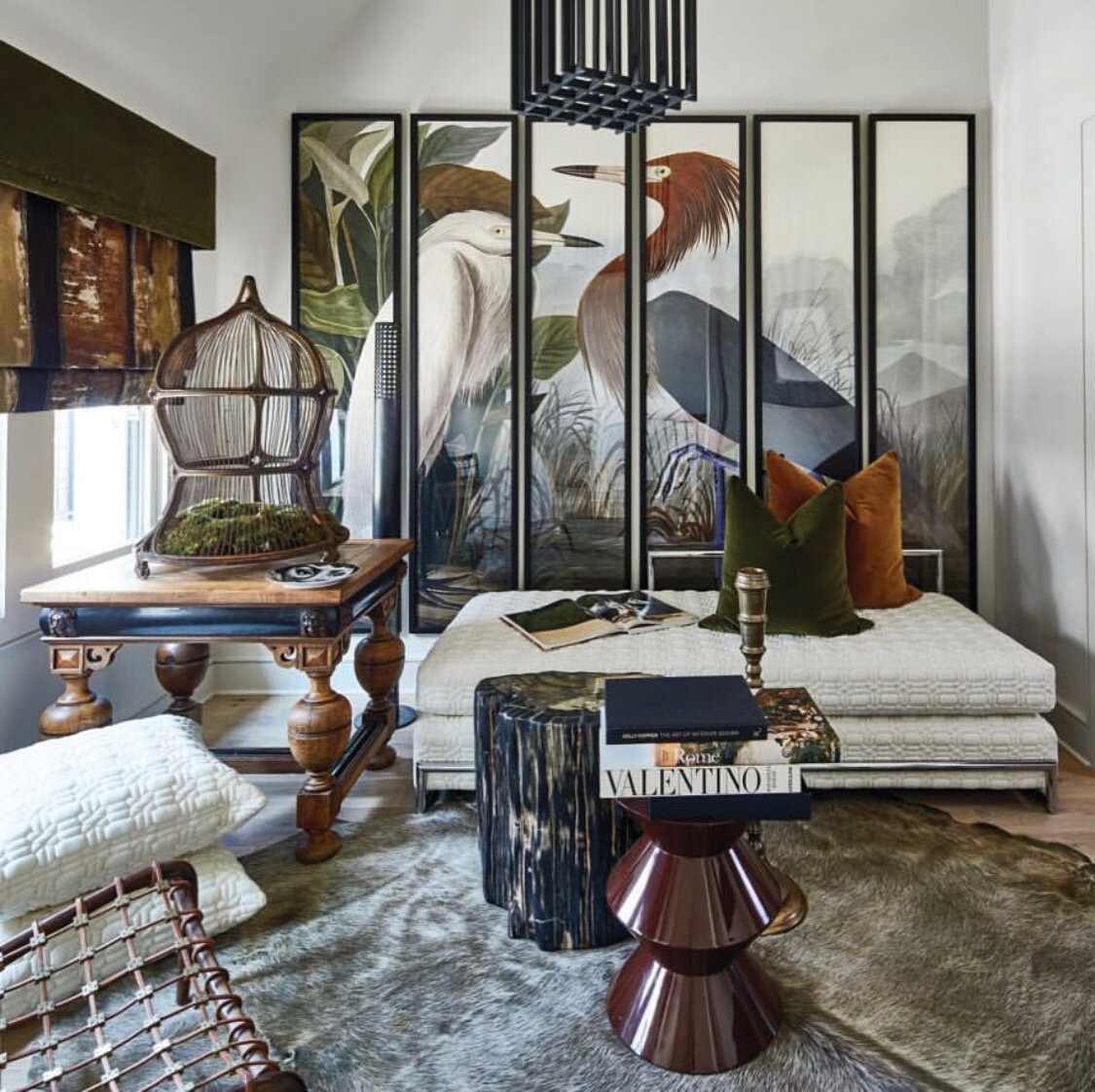An Interview with Jason Mitchell

Jason Mitchell is an Atlanta-based curated designer. After working as a flight attendant for over a decade, Mitchell studied art, design, and fashion at Bauder College in Atlanta. He eventually started J Ansel Designs in 2005. Mitchell specializes in both commercial and residential design. Mitchell spoke to FORM about where he developed his passion for design and his approach to working with clients to curate spaces.
Sawyer Uzzell : Thank you so much for taking time to chat with me today. I really appreciate it. I would love to hear more about your personal background. How did you get to where you are and what first sparked your interest in interior design?
Jason Mitchell: It was actually through my grandmother. I learned a lot as a child growing up. She was a bootlegger at night and a seamstress by day. We used to go to our grandma's house because there were always people moving through the house getting things hemmed or aligned. When everyone would get off work in the neighborhood, my grandmother’s house was the place where everybody would come to eat and drink and all that kind of stuff. My grandmother would say, we have to get the house ready for this or that. So it felt as if we entertained all the time, or we were changing the space quite often, you know, depending on who was coming, whether it was people from the church or from the neighborhood or who like to drink or whatever they would come in and stay at the house.
My grandmother always said that I had the eye for interior design and that there was something special about me. Honestly, that kind of frightened me, and I went into a cocoon for a while. I didn't want to do design, one because of the stigma that's behind it. You’re either gay and this and that, and I thought I was going to be ostracized from the family. So I hid it for a very, very, very long time. I went to a Bible school, where one of my friends became pregnant. One of the bylaws of the school stated that if you got pregnant out of wedlock, you'd be kicked out of school. And so, at that moment, I was just like, okay, so they're gonna kick out my friend now, they had to kick me out too, so what can I do to get kicked out? So I turned the entire library into a baby shower for unmarried mothers. I had caterers, food, it was everything. And my professor, Dr. Sophia Matthews — I would never forget this lady — she came to me and said, “this is not where you're supposed to be. You have a gift. You've been hiding and I don't know why you're running. But you need to go and explore.” And I'll tell you that next semester, I withdrew from Bible school and I went to architecture interior design school and I graduated cum laude and never studied. And here I am.
S: Wow, that's an insane story of how you got to where you are!
J: Yes, and it was all because I was running and hiding.
S: I wasn't sure if you consider yourself an interior decorator, interior designer, a curator, etc. Do you have a title that you prefer to use for what you do?
J: I will say that I am a curated designer because anyone can come in and just go to Home Goods and all that kind of stuff. For me, I actually like to feel my clients out and wait for a while just to get to know them because I just don't want to buy something that's going to be trendy. Instead, it can be a rock that you found in Italy or it can be a button or can be a suit from a grandmother or a piece of wood from an old house, and bringing in something that inspires you, inspires me. Also, having the creative space to go totally off the beaten path. That’s what makes the room more curated to me or feel curated.
S: Can you talk more about working with different clients and how you combine what your vision is for the space with what their needs are?
J: Overall, my job as a designer is to manage the expectations of my clients through consultations. I try to spend a lot of time with my clients, whether I'm walking around or we have dinner together — just to see how they react to certain colors or to certain things. I can literally go in someone's closet and say, “Oh my God, this person wears nothing but blacks and blues.” So I know I have to incorporate a lot of blues or blacks into the overall design scheme. It is so important to just learn your clients, knowing what they like, where they like to travel and things like that and gathering as much information as you can. When a space is done you want them to say, “Oh my god! I feel like you’ve known me my whole life.” I would say that 80% of my job is to listen and 20% is the actual execution.
S: What is the most frustrating aspect of your job as a designer and what is the most rewarding?
J: It can be frustrating to manage the expectations of other people, i.e. your contractors, delivery times and dates sometimes. I don't like timelines, but I can never get frustrated with a person who’s money I’m spending. As a designer, I never wanted to become that asshole. So, it’s just the ripple effect of dealing with different vendors and contractors. From a place of professionalism, you have to make sure that you have the best people on your teams and of course things always happen, unfortunately. I have never had a single project run seamlessly, there’s always going to be a hiccup somewhere.
S: Okay, what is the most rewarding side of your job?
J: When I can walk into a room and not only do I feel good about it, but my clients feel good about it. Even when my clients send me the most amazing texts or messages and they give me referrals, I could care less about another referral. If my client is not smiling and they don't send me a text message every now and again saying, “Oh my god, I'm just laying in my room. I don't want to move!” Just to hear those words. I honestly feel like I conquered the world.
S: In your opinion, how has the industry overall evolved over the years and personally how have you changed as a designer?
J: It’s ever-changing. I've become more thoughtful than anything else. I'm always trying to make sure that I'm doing my very best, but sometimes you have to take two steps back to take one step forward. Going back to what you said earlier that this is someone’s sanctuary, a home is like a child for some people and you are in their personal space. So I have definitely become more thoughtful and intentional over time.
Moving forward, I would love to move my operation into a small boutique store where you can find great pieces. I just want it to be very thoughtful and unique, if you will. Timeless, timeless pieces.
S: What projects are you working on at the moment that you're excited about?
J: I’m excited about this master bedroom in Buckhead. Also, I'm doing this commercial project over at Ponce City Market with McKinsey and Company, and I have a waterfront penthouse down in Miami that I'm looking forward to. I have to deal with a lot of different parameters around weather and acclamation. And then with this commercial project, being the fact that I am a residential designer, there are so many different codes and so many different things that you have to pay attention to from slip resistances and water-retaining walls, all this kind of stuff that I've never thought about from a residential side. So I'm excited.
S: That’s incredible. Do you see the coronavirus having an impact, not in terms of just like supply chains, but an impact on design and creation.
J: I don't think so because I’ve found that my business has grown. Although I can't take on new projects, I have potential clients who are waiting. Because people are sitting at home and they're realizing, “Oh my god, I need to do something to this damn room, I need to do something different. Why is the curtain leaning? Or why is the cabinet hanging off?” If we can’t travel, you want to walk into your living room, your bedroom, you can even walk into your bathroom and feel like it’s one of the best places you’ve ever visited. You don’t have to go on vacation because you feel like you are already on one in your own home. So with that being said, I’ve gotten so many requests with people begging me to put them in my schedule. So for my business, thank God for COVID!
S: Hahaha. In your work, how do you combine beauty with functionality?
J: Fashion inspires interior designs, for me. I am always looking at different shows, following the latest Patone color that will be driving fashion and that can inspire a room. In design, the furniture is like your outfit and the accessories are your jewelry. Which is again why it's so important to know your clients and know their lifestyle, personality, and closets.
S: Given the recent media coverage of the Black Lives Matter movement and as a Black artist in this career, how do you see the movement impacting your career?
J: I've watched everything that's happened and, first, me being a Black male, I've become very numb. My job is to create spaces: how can I create a place where people of different generations and different races can all come together to congregate and talk? How can I create a space where everybody is included? As far as the impact on me personally, I have become so numb that I don’t know what to think. I am not even scared anymore but I am more scared for my parents and my sisters. I am the only boy and I have seven sisters, and I am scared because they are always so worried about me. They’re always calling to check in on me and ask why I have to go there or stay this late. There are all these “what ifs” and I am trying to filter through that in order to get to a place where I can build a space or create something to just bring people together.
S: Yeah, I completely agree. I just have to take it one day at a time.
J: Yes, yes.
S: Do you have any advice that you would give to a student who wants to get into this line of work?
J: Some advice to students, I would say it is so important to be honest and transparent with your clients. Transparency is everything. When you’re dealing with clients who have, for instance, some heirlooms or things that they want to use in the space, you can’t just get rid of it because you don’t like it. I would never want to force my design aesthetic onto someone. So you have to be open and honest with your clients and really create an open dialogue. Like you said, we are building sanctuaries for people and your client wants to feel a part of the process too, so it is so important to include them and their ideas to create these beautiful, personal spaces.
S: Is there anything you wish people had told you when you were first starting out?
J: I wish people told me that you get a lot of headaches and won't get a lot of sleep! I’m kidding. Because the thing is, I was born to do this. As a Christian, you are taught that not everyday is going to be sunny and there will probably be more rainy days than sunny days. My thing is, because I love what I do, you can’t pay me enough to do anything else. There is nothing that really upsets me to the point that I would quit. Because I believe this is a gift from God and my gift back to God is to make sure that I put a smile on somebody's face.
S: That's an incredible philosophy to have and it does seem like you were born with this natural talent to do this. For a lot of people, it takes years to figure out what they want to do in life but for you it was more a matter of pursuing your passion rather than finding it.
J: Yeah, the day I feel like I am going to work is the day I stop designing. I’m done. Hanging it up. I mean that really takes the fun out of it if I feel like I am doing a 9-to-5. But yes, curating spaces is where I was planted, rooted, and grounded.
S: So funny, but yeah, I guess it does just speak to how close you are with everyone you're working with.
J: Yes, and I think that comes from me having all my sisters take care of me growing up. I am next to the baby of all the girls. But I absolutely love my sisters and I really just love the entity of a woman, period. And I think God is one.
S: Yeah, yeah. I agree.
J: Everything is beautiful. What woman wouldn't create such a beautiful place called Earth?
S: Yeah, your story is very incredible that you have had this passion in you forever. That's so rare.
J: Yes, yes indeed. I wouldn't trade it. I honestly wish I could go back and just start over because God knows where I would be if I didn’t hide from it for so long.
S: Well, thank you so much for talking to me today. This has been really incredible and inspiring.
J: Thank you, and awesome. I love it.


